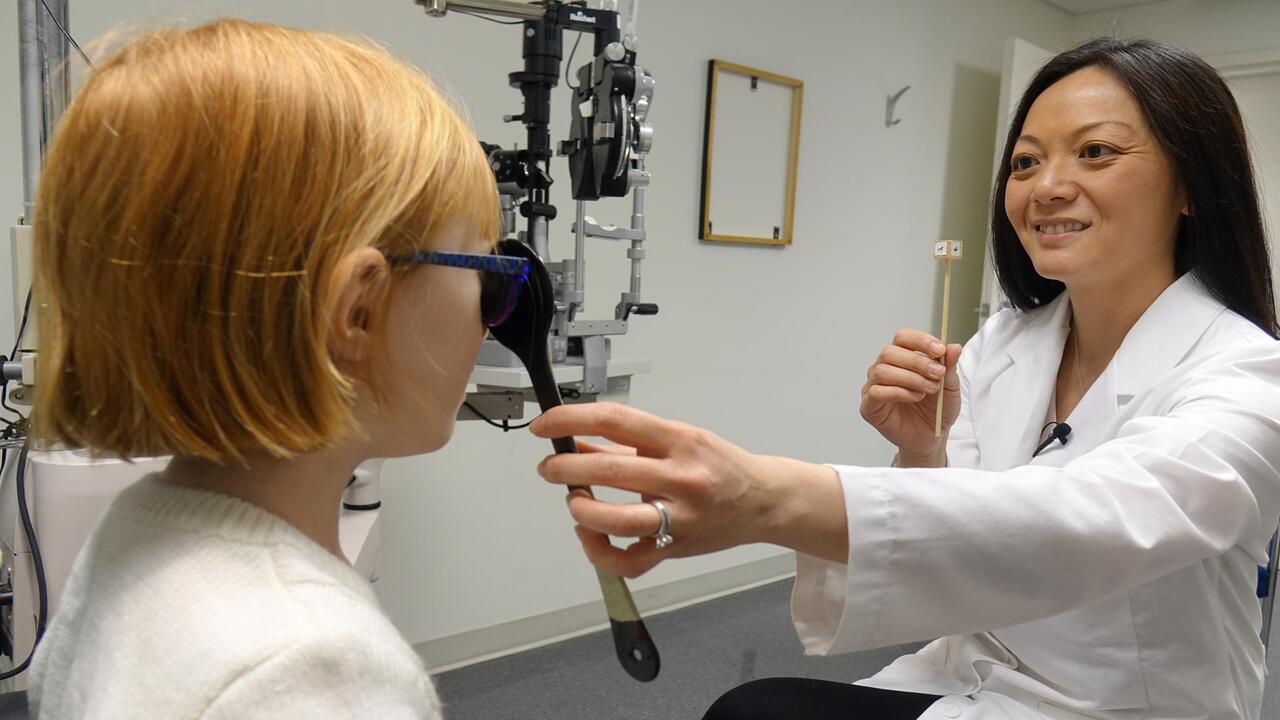
Eye exams linked to kids’ reading levels
Elementary school children who read below grade level may have challenges with their eyesight even if standard tests show they see 20/20.

Elementary school children who read below grade level may have challenges with their eyesight even if standard tests show they see 20/20.
By Victoria Van Cappellen Faculty of ScienceElementary school children who read below grade level may have challenges with their eyesight even if standard tests show they see 20/20, according to a new study from the University of Waterloo.
The study showed that children with reading challenges may have lower than expected binocular vision test results, something a standard eye exam may overlook.
"A complete binocular vision assessment is not always part of the standard vision test," said Dr. Lisa Christian, lead researcher on the project and an Associate Clinical Professor at the School of Optometry and Vision Science, University of Waterloo. "However, binocular vision problems could be compounding a child's academic difficulties, and should be investigated."

An international team of researchers has proposed ways to train large language models to be wiser and to measure AI wisdom (Getty Images/PhonlamaiPhoto).
Read more
International study suggests ways to train large language models in wise reasoning and measure the wisdom of AI

Read more
Researchers engineer bacteria capable of consuming tumours from the inside out

Hand holding small pieces of cut colourful plastic bottles, which Waterloo researchers are now able to convert into high-value products using sunlight. (RecycleMan/Getty Images)
Read more
Sunlight-powered process converts plastic waste into a valuable chemical without added emissions
The University of Waterloo acknowledges that much of our work takes place on the traditional territory of the Neutral, Anishinaabeg, and Haudenosaunee peoples. Our main campus is situated on the Haldimand Tract, the land granted to the Six Nations that includes six miles on each side of the Grand River. Our active work toward reconciliation takes place across our campuses through research, learning, teaching, and community building, and is co-ordinated within the Office of Indigenous Relations.